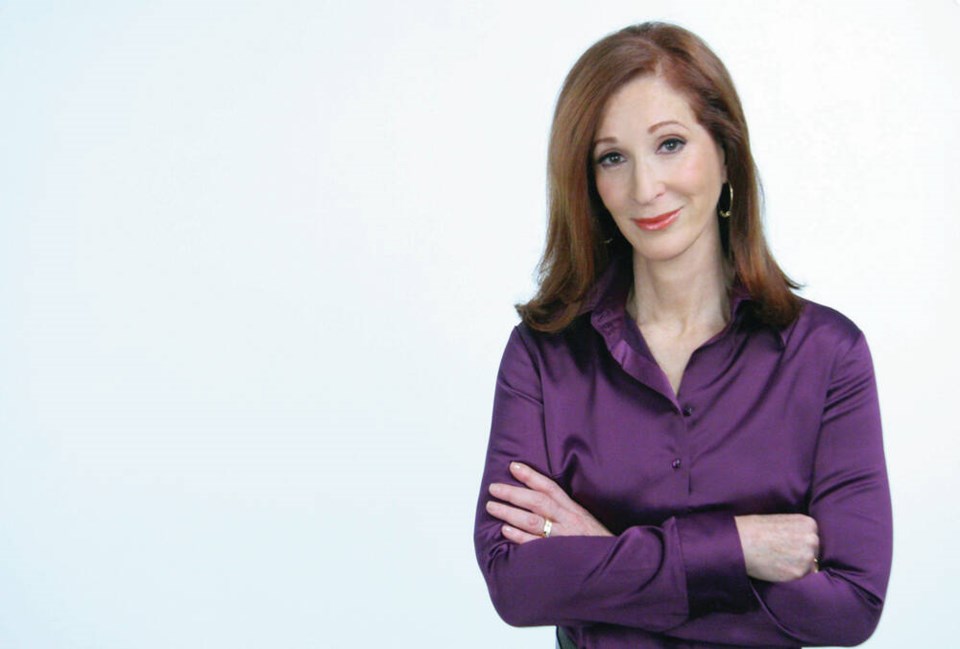Dear Ellie: My friend is a serial dater, always looking for the “better” guy. We’ve been friends since high school and she’s always been like this.
When we were 15, she was determined to have a boyfriend. But as soon as a classmate told her she was pretty and asked her to go to a movie with him, she was flirting elsewhere. I was that passed-over guy.
Now we’re still friends, both 23. She’s been talking to me about a guy she met online whom she likes. She’s coloured her hair brighter blonde because he said that he always prefers blondes.
She’s hoping to meet him in person soon and already talking about him like they’re a couple. This has happened at least half a dozen times in the past couple of years, and things never work out as she hopes.
I’ve told her it’s because she comes on too strong to these guys, and that’s why all they want is sex. They make moves on her and then she gets flustered and scared.
I still have feelings for her and believe she’s a good person. Do you think I have a chance with her? How do I get her to see who I really am and not just her pal from high-school days?
Liking A Dating Junkie
You must be a special guy to see past her neediness. Her boyfriend craze since age 15 could come from being generally insecure, competitive with other women, or feeling she has to prove her worth.
Now, repeatedly pursuing strangers online to meet in person, she’s risking her physical safety and also her health through possible sexually transmitted infections (STI’s) if she has unprotected sex with men having other contacts unknown to her.
She needs straight talk from you as her friend, with your wish to date her temporarily set aside. Instead, urge her to talk to a counsellor about all of the above.
Tell her you truly care about her as a person, and hope that, from counselling, she also learns to love herself first. If that happens, your own relationship with her has more chance to develop.
Reader’s commentary regarding the woman who finds her husband’s parents and sisters “too close for comfort” (Nov.1):
“I’ve been friends with two people who would drop everything when a family member, particularly a parent, called.
“In both cases, the family had experienced life-changing trauma. In one instance, it was terrible war trauma they’d endured. In another, the man’s little sister had died when they were toddlers.
“It seemed to me that these friends who grew up with grieving, depressed parents always bent over backwards to try to help them as part of a desperate, life-long attempt to minimize their pain.
“I’ve also found that the death of someone’s sibling when both are young children is often ignored in any discussions of parental depression and the sibling’s maladaptive patterns later.
“That’s why this woman should ask her husband why he is so reactive to every parental request, with a probing discussion about it.
“Also, she should simply tell her husband that the daily morning phone call from his father has become disruptive to their family life, and request that he change that pattern.
“To continue will be at the heart of her growing resentment of his family, which presumably is something he doesn’t want. That should be the start of an honest discussion about what’s going on and how to change it.”
Dear Ellie: My partner and I are mid-40s, together 10 years. We love each other, but when a recent fall caused me a badly broken leg, he was no help.
I couldn’t walk even a few steps without a walker, nor get my own food. He doesn’t know how to cook a healthy meal, so just brought us takeout that was too hard on my digestion. Also, whenever I mentioned my pain, he’d get squeamish.
I’m now worried about when we’re older when I might need care. Otherwise, he’s a good man.
He’s No Caregiver
It’s who and what he is that matters long-term — “a good man,” and partner who loves you.
You now know ahead that you’d have to rely on other people for help … a relative or friend for simple food drop-offs, or a paid home caregiver.
Positive possibilities: 1) you’ll be healthy for years to come; 2) he’ll learn to help you.
Ellie’s tip of the day
Until a person values themself, their search for romance and connection keeps repeating its negative pattern.
Send relationship questions to [email protected].
Follow @ellieadvice.



